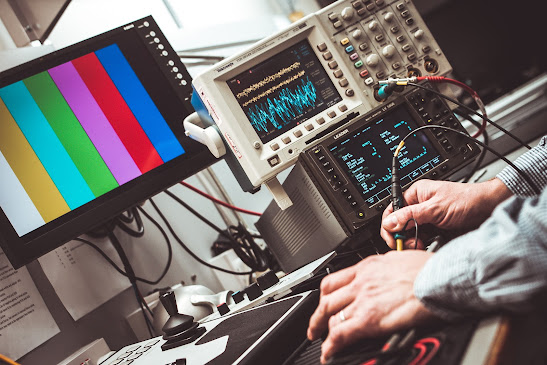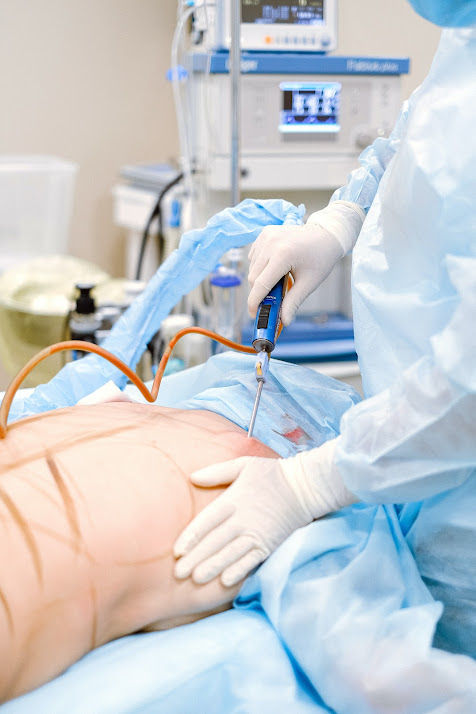Easy at-home ovulation test
Ovulation is the release of an egg from the ovary. It
usually happens about midway through your menstrual cycle. After the egg is
released, it travels down the fallopian tube, where it may be fertilized by
sperm.
If you’re trying to get pregnant, you may want to start
tracking your ovulation. There are a few different ways to do this. One option
is to use an ovulation predictor kit (OPK). These kits test your urine for
luteinizing hormone (LH), which increases shortly before ovulation.
What is an ovulation
test?
* Why is it important to track ovulation?
* When is the best time to take an ovulation test?
*How can an ovulation test help you get pregnant?
*How do easily
at-home ovulation tests work?
* Are there any risks associated with using ovulation tests?
What is an ovulation test?
An ovulation test is a test that is used to predict when a
woman is ovulating. It measures the level of luteinizing hormone (LH) in a
woman's urine. LH is a hormone that is released by the pituitary gland and is
responsible for stimulating ovulation.
Ovulation tests are often used by couples who are trying to
conceive. By knowing when a woman is ovulating, they can time intercourse
accordingly and increase their chances of becoming pregnant. Ovulation tests
are also used by women who want to avoid becoming pregnant. By avoiding sexual
intercourse during the times when a woman is most fertile, they can reduce
their chances of becoming pregnant.
Ovulation tests are available without a prescription and can
be found at most pharmacies. They are relatively easy to use and typically come
with instructions on how to interpret the results
Why is it important to track ovulation?
There are a number of reasons why tracking ovulation is
important. For one, it can help you to avoid unwanted pregnancies. By knowing
when you are ovulating, you can ensure that you do not have sex during your
most fertile days. Additionally, tracking ovulation can also help you to
achieve pregnancy if you are trying to conceive. By knowing your cycle, you can
increase your chances of becoming pregnant.
Furthermore, tracking ovulation can also help you to monitor
your overall health. By understanding your cycle, you can identify any
potential problems or irregularities. Additionally, ovulation can be affected
by a number of different factors, such as stress or illness. Therefore, by
tracking your ovulation, you can get a better sense of your overall health and
well-being.
When is the best time to take an ovulation test?
If you're trying to get pregnant, you may be wondering when
the best time to take an ovulation test is. The answer to this question depends
on a few factors, such as the type of ovulation test you're using and your
menstrual cycle.
Generally, the best time to take an ovulation test is during
the middle of your cycle, or around the time when you expect to ovulate. This
way, you'll have a better chance of getting accurate results. For most women,
ovulation occurs around day 14 of their cycle. Therefore, taking an ovulation
test around this time will give you the best chance of getting accurate
results.
If you're using an ovulation predictor kit, you may want to
start testing around day 10 of your cycle. This way, you'll be able to catch
the early signs of ovulation
How can an ovulation test help you get pregnant?
If you are trying to conceive, you may be wondering if there
is anything you can do to help increase your chances of getting pregnant. One
option you may want to consider is using an ovulation test.
An ovulation test is a tool that can help you track your
ovulation cycles. By knowing when you are ovulating, you can increase your
chances of conceiving by timing intercourse around your ovulation. You can also
use ovulation tests to avoid intercourse during your most fertile days if you
are not trying to get pregnant.
Ovulation tests are available without a prescription and are
relatively easy to use. If you are thinking about using an ovulation test to
help you conceive, talk to your doctor to see if it is right for you.
How do easily at-home ovulation tests work?
At-home ovulation tests are simple and easy to use. The most
popular type of ovulation test is a urine test. To use a urine ovulation test,
you will need to collect your urine in a clean cup. Then, you will dip the test
strip into the urine and wait for the results. The test strip will change color
to indicate if you are ovulating.
Other types of ovulation tests include saliva tests and
blood tests. Saliva ovulation tests work by detecting changes in your saliva
that happen when you ovulate. Blood ovulation tests measure the level of a
hormone called luteinizing hormone (LH) in your blood. LH levels increase right
before you ovulate.
Ovulation tests are accurate if used correctly. To increase
the accuracy of your results, make sure to read the instructions that come with
Are there any risks associated with using ovulation
tests?
Ovulation tests are a popular and effective way to track a
woman’s ovulation cycle. However, as with any medical product, there are
certain risks associated with their use. The most common risk is false-positive
results, which can occur if the test is used incorrectly or if the woman is
taking certain medications. Other risks include inconclusive results, which may
be due to a woman’s hormones being out of balance, and false-negative results,
which can occur if the test is taken too early or too late in the ovulation
cycle.
Despite these risks, ovulation tests are generally safe and
accurate when used as directed. If you are concerned about any of the risks, be
sure to speak with your healthcare provider before using an ovulation test.
In conclusion, the best way to ensure you are ovulating is to
use an at-home ovulation test. These tests are easy to use and give accurate
results. You can use them to track your ovulation cycle and to help you plan
for sex.







Comments
Post a Comment